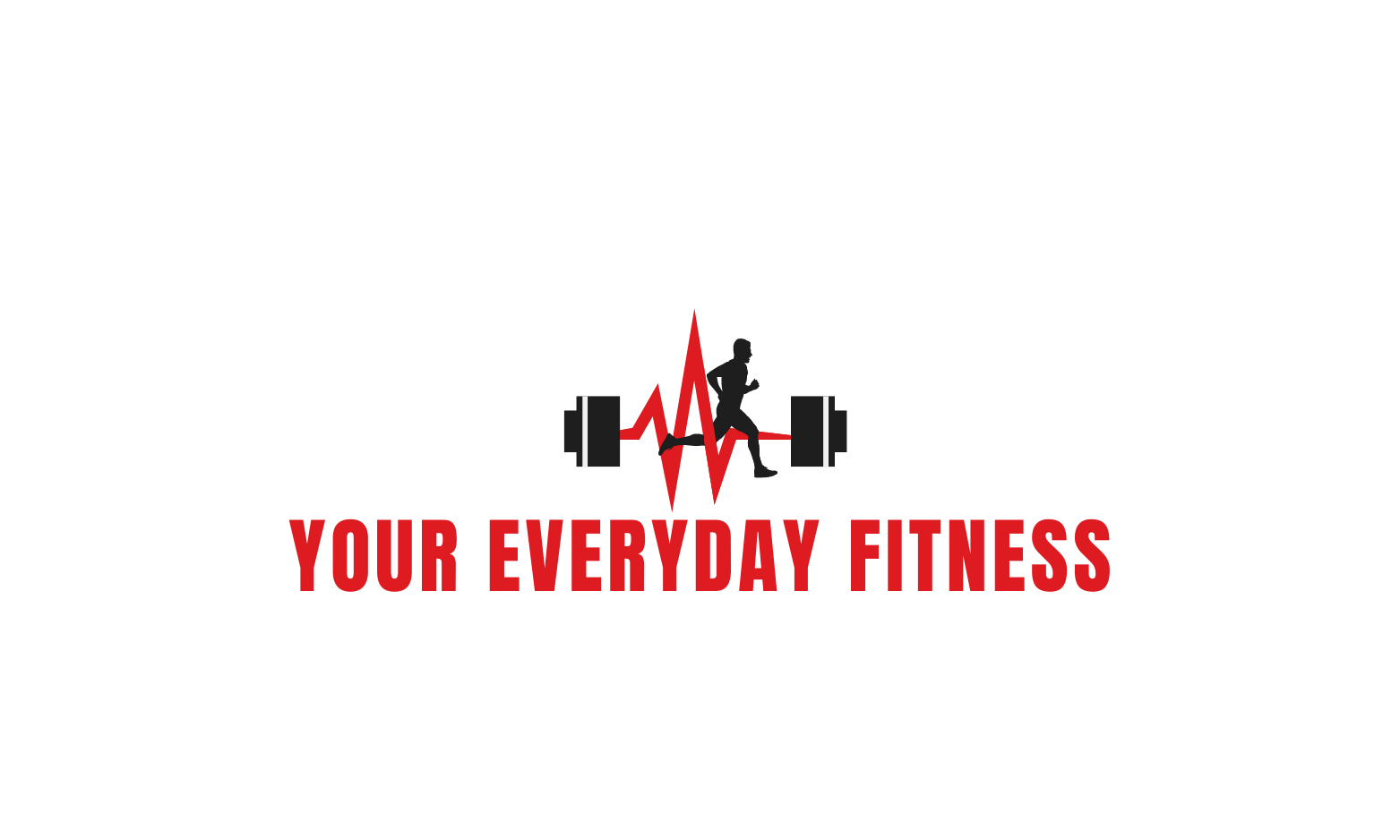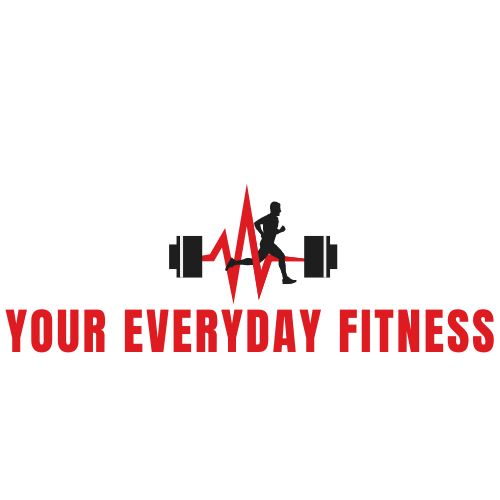Introduction to Nutrition and Strength Gains
Yes, you may hit the gym to get strong and build muscles, but what you fuel your body with is the real difference maker. Nutrition is what fuels your workouts, helps muscle growth, speeds up recovery, and gets rid of that body fat that you hate so much. Today, we will get into how nutrition and strength are very much interconnected, and why nutrition can make or break your gains.
Why Nutrition Matters for Strength Gains

Eating right is a deal breaker for anyone who wants to optimize their strength training. The food you put in your body gives you the energy to crush workouts and the nutrients to repair and build muscle. If you skip out on taking care of your nutritional needs, you won’t achieve all that you could if you ate right.
Let’s break down the macronutrients:
- Protein: Protein is your muscle’s best friend. It helps to repair and grow muscle tissues after those hard workouts which tear up your muscle tissues.
- Carbs: Carbs are your body’s go-to energy source. They give you fuel so that you can be energized during your workout, and will also regenerate that fuel and help you feel not-so dead after a workout.
- Healthy Fats: The most misunderstood macro is fat. Healthy fats cannot be skipped. They help regulate hormones that are extremely important for muscle mass growth and strength.
Now that you know how macronutrients play a role in your body for workouts, let’s not forget to mention the most important thing: water! Staying hydrated helps muscle function and nutrient transport. Drinking enough water before, during, and after your workouts will keep your performance and recovery on point.
How Nutrition and Strength Training Work Together

The relationship between what you eat and how you train is an inter-connected machine that needs to be considered. Here are some things to remember:
- Energy Balance: You need to eat enough calories to fuel your workouts and recovery. Too few, and you’ll be running on empty, too many, and you’ll be slowly working through the motions at a decreased energy.
- Macronutrients: Like we said, protein, carbs, and fats each play their own special role. You need to optimize macronutrients everyday! They are very easy to keep track of.
- Micronutrients: Vitamins and minerals are some of the less known heroes. They support energy production, muscle contractions and a whole lot more. Make sure to include fruits, veggies, whole grains, and lean proteins to cover your bases.
- Meal Timing: When you eat can be just as important as what you eat. Having a meal or snack with proteins and carbs before and after you workout will not only optimize gains, but speed up recovery.
- Personal Needs: Everyone’s different. You need to base your diet around your age, body type, sex, goals, activity level and more. The more specific you can be to fit your own needs, the better. If you aren’t sure, a registered dietitian or nutritionist can help you figure out what’s best for you.
Now that you know how nutrition and strength training work together, we can get into the details of nutrients that you will need, and when you should eat throughout the day of a workout. Then, we’ll talk about some supplements that can give you additional boosts.
Essential Nutrients for Strength Training
The three most important nutrients are macronutrients: proteins, carbs, and fats (healthy fats, specifically). These are the key to helping you gain muscle and strength.
Protein: The Muscle Builder
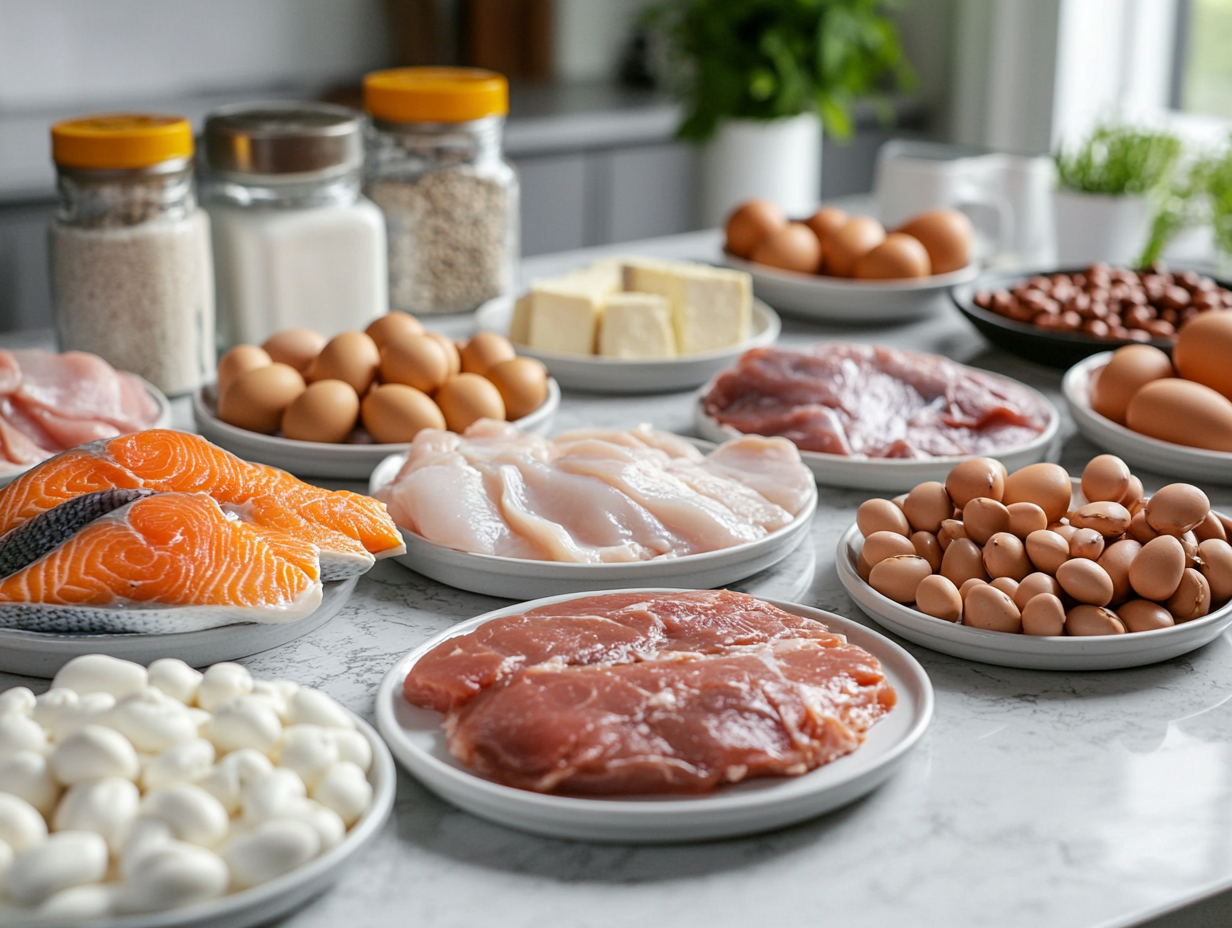
Muscle protein synthesis helps repair and grows muscle tissue, meaning protein is the most important macronutrient for gains. Lifting weights and working out causes tearing in the muscles. Protein repairs those tears and allows your muscles to become bigger and stronger. It’s important that your muscle protein breakdown does not exceed the muscle protein synthesis, otherwise you may lose muscle, so get your protein in!
Consuming 0.7 to 1 gram of protein per pound of body weight each day, when combined with resistance training, leads to the most significant gains in muscle mass and strength (Carbone & Pasiakos, 2019).
Complete proteins that contain the nine essential amino acids are the best source of protein. Think lean meats, chicken, fish, eggs, dairy, beans, and tofu. Protein shakes can help you achieve your daily goals.
Need more info on protein? Check out our article on best protein supplements for strength.
Carbs: The Energy Source
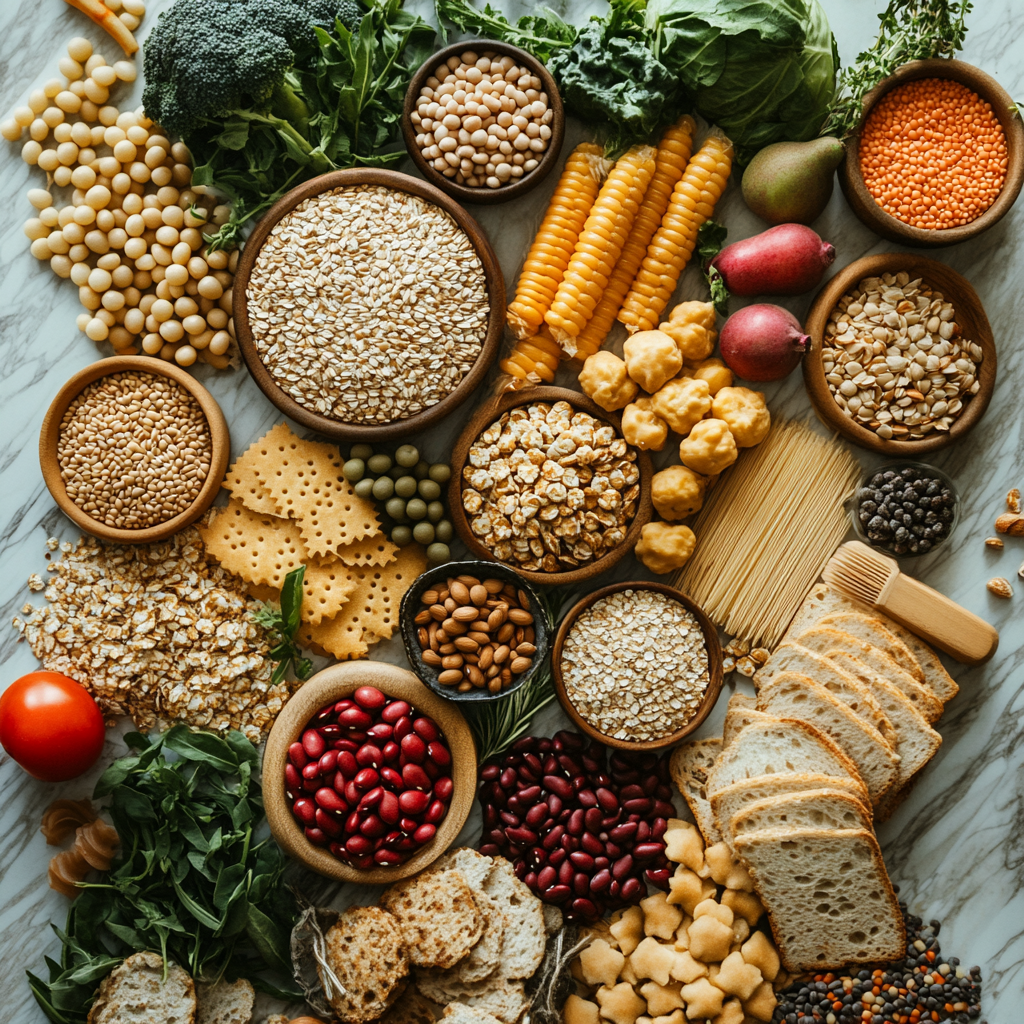
Carbohydrates are what fuels your body, giving it energy. During a workout, your muscles burn glycogen, which comes from carbs. Eating carbs before your workout will give you the energy to lift with maximum energy. Be careful not to consume too much before a lift though.
One study showed that individuals with a higher carbohydrate intake made lean muscle mass gains of 3.5%, compared to 0.8% from individuals with low carbohydrate intake (Ribeiro et al., 2023).
Carbs also help you recover after training by refilling glycogen stores and boosting muscle recovery. Complex carbohydrates like whole grains, fruits, veggies, and beans are the best options. They will give you energy due to their vitamins and minerals.
Want to know more about post-workout nutrition? See our article on strength training recovery.
Healthy Fats: The Hormone Helpers
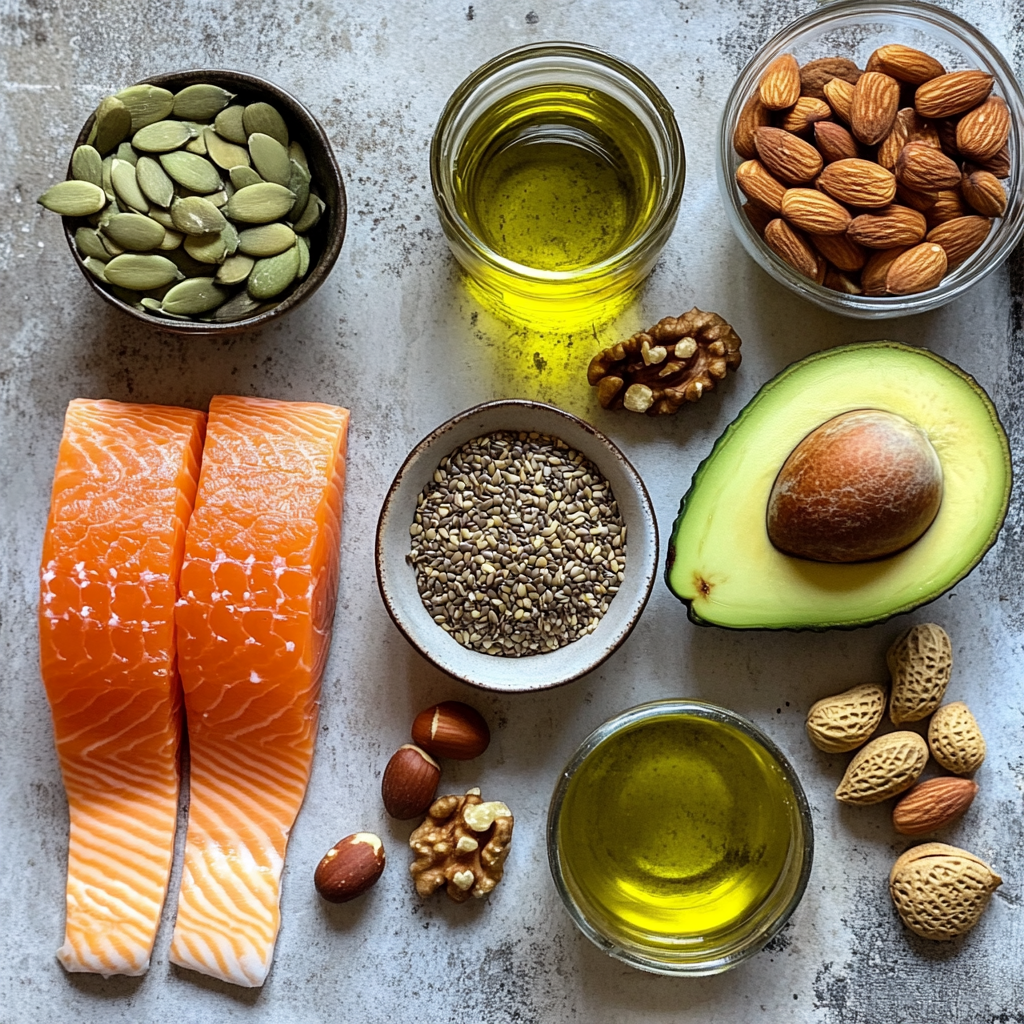
Fats often get a bad rap, but they’re actually amazing for hormone regulation. Hormones like testosterone and growth hormone play huge roles in muscle growth and recovery.
Fatigue occurs during exercise due to the depletion of glycogen or fat, so making sure your fat stores are adequate will help you fight fatigue (Pendergast, Horvath, Leddy, & Venkatraman, 1996).
Healthy fats like avocados, nuts, seeds, olive oil, and fatty fish like salmon are great additions to any diet. These fats are rich in omega-3s, which fight inflammation and support overall health. No need to go overboard though, fats have a lot of calories. You need to balance them with your proteins and carbs.
By optimizing your macronutrient intake, and balancing all 3, you will crush your strength training goals. Make sure to listen to your body and change your diet in the way that best fits YOU. You can always consider talking to a dietitian who knows their stuff if you would like.
Hydration and Strength Training

Staying hydrated is equally important to what you eat. Hydrating properly keeps you healthy and helps enhance your gains. Let’s dive into why hydrating is so important.
Why Hydration Matters
When you’re weight lifting, your body heats up and you sweat. I’m sure you know that by now, after being drenched after a lift. Anyways, when your body loses water like this, you have to replace it, or else your performance will get worse.
Dehydration makes you weaker, more tired, and will leave you feeling like a dead man walking. I bet you know what I am talking about.
Water does a lot for your body. It keeps your temperature in check, lubricates your joints, and helps deliver nutrients to your muscles. You have to drink enough water throughout the day to avoid cramps, fatigue, or decreases in strength.
How Much to Drink
Well, how much water exactly? That depends on a few things. You can cater how much water you drink to things like your weight, how hard you’re working out, how long you’re at it, and even the weather.
Some general guidelines you can follow:
- Before Your Workout: Drink about 16 to 20 ounces (2 to 3 cups) of water or a sports drink like a Gatorade a couple of hours before you hit the gym. This will keep you hydrated enough to get going.
- During Your Workout: Have 8 to 10 ounces (about a cup) of water or a sports drink every 15 to 20 minutes. This will replace all that water you’ve sweat out, and give you enough energy to keep pushing. I always make sure to stay hydrated during a good lift.
- After Your Workout: Keep drinking to help your body recover. Aim for 16 to 24 ounces (2 to 3 cups) for every pound you lost during your workout. This might be hard to gauge, but lets just say that you should drink enough to feel replenished again, but not too much where you are bloated.
These are general tips, but really just listen to your body and adjust as you go. I try to just drink a gallon of water everyday, and that makes me feel pretty good. If it’s hot or you’re sweating a lot, you might need more. You can probably gauge this pretty well.
By keeping an eye on your hydration, you’ll feel better, last longer, and get stronger.
Pre-Workout Nutrition Strategies

So, you are ready to hit the gym, but you need to eat first and you got no clue what to have. I got you covered, don’t worry.
A great strength training session starts with what you eat before you hit the gym. You have to give your body the energy and nutrients it needs to perform at its best and build the maximum amount of muscle.
Let’s break down the timing and what to eat before your workout, plus some snack ideas to keep you feeling good.
Timing and What to Eat Before Your Workout
You want enough energy to power through without feeling like you’ve got a brick in your stomach. Aim to eat a meal or snack with carbs and protein about 1 to 3 hours before you start lifting.
Having carbohydrates before a longer workout have been proven to improve performance. Adding protein to these meals will also increase glycoen synthesis and improve metabolic responses during the workout. However, for workouts shorter than 60-90 minutes, withholding from carbs may be the best option (Ormsbee, Bach, & Baur, 2014).
endurance exercise generally improves performance by increasing glycogen stores and availability, despite reducing fat oxidation.
Go for complex carbs like whole grains, fruits, and veggies for a slow energy release. For protein, include some lean protein like chicken, fish, tofu, or Greek yogurt.
Here’s a simple pre-workout meal idea:
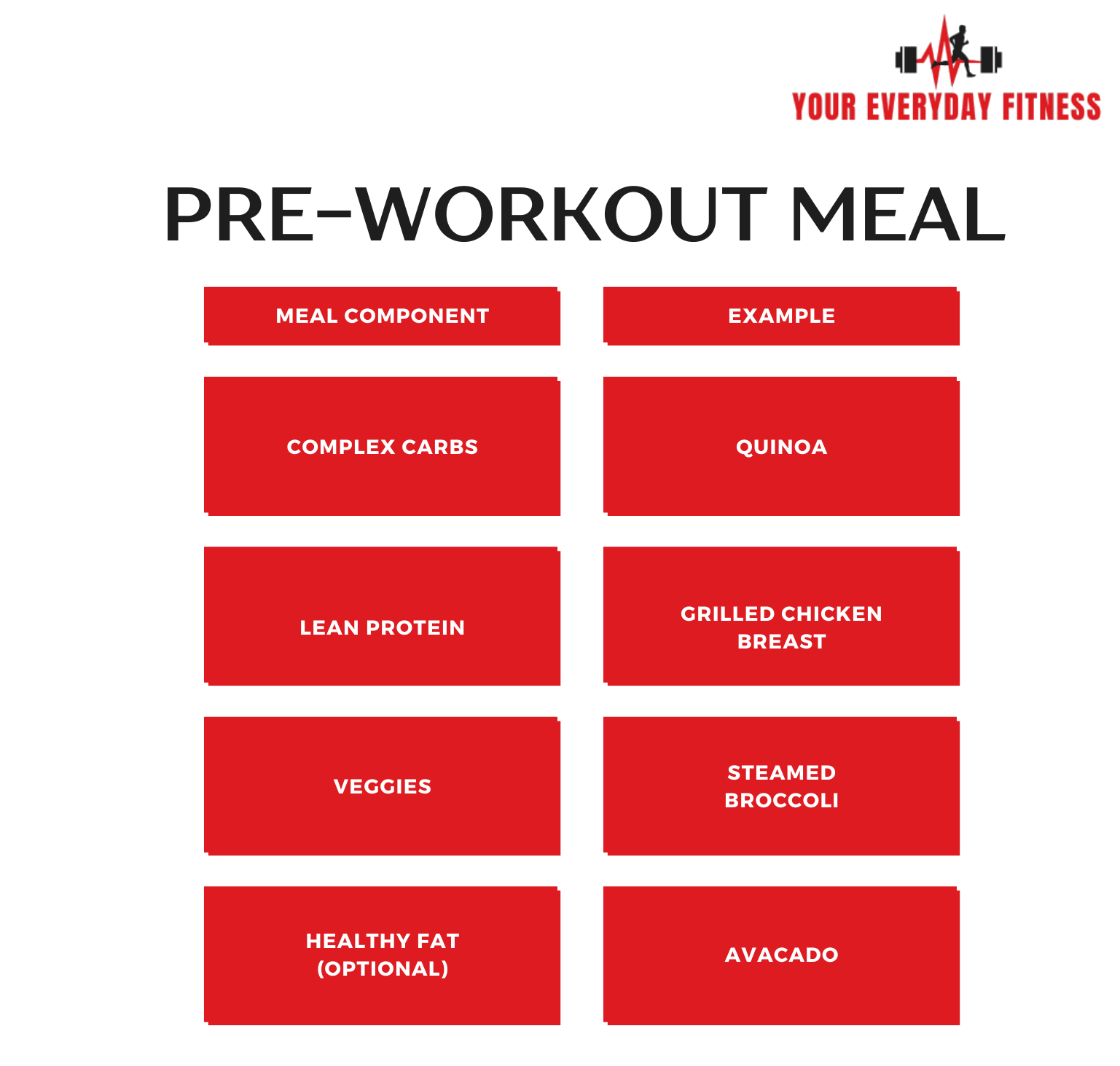
Listen to your body and change the portions to fit your needs. I change it up quite often but some chicken and rice in a small to medium sized portion always works for me.
Snack Ideas to Keep You Going
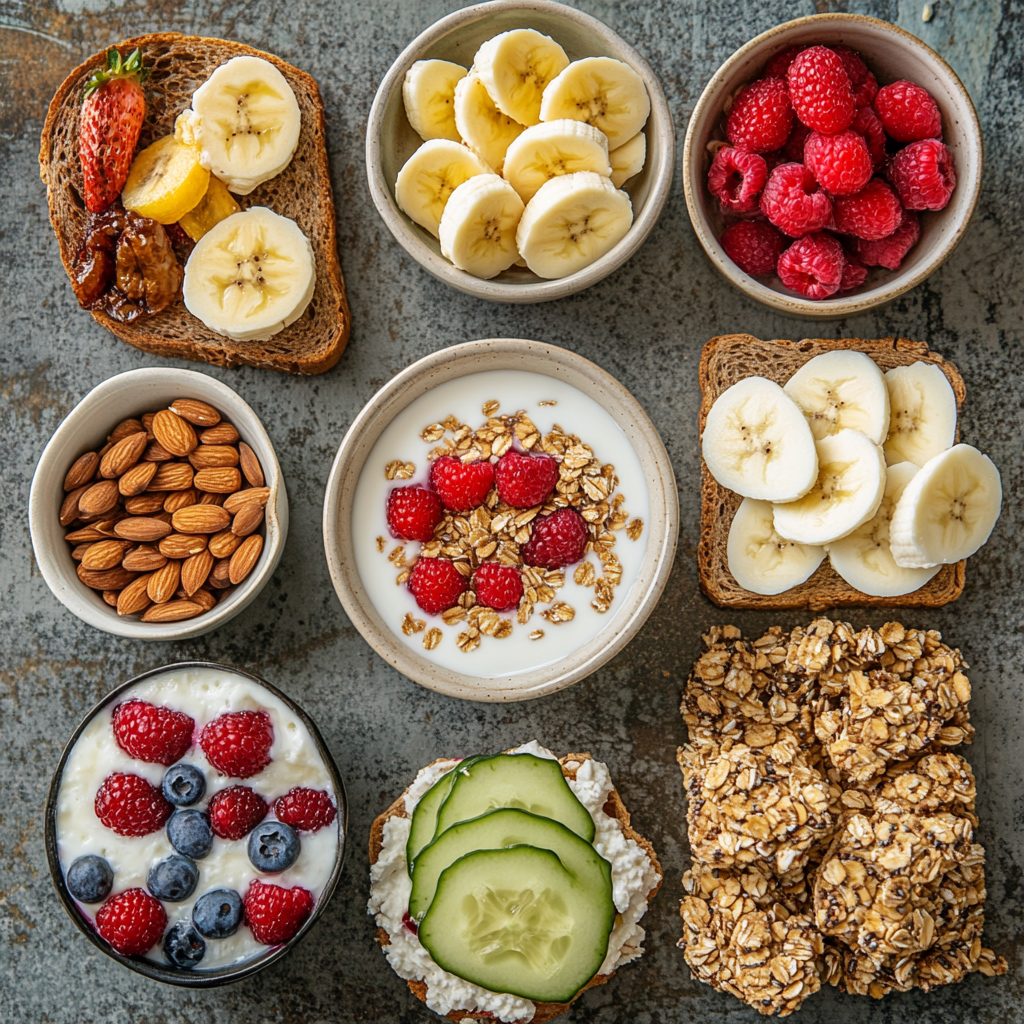
If a full meal isn’t your thing or you’re short on time, snacks can be enough. Pick something you can digest easily and make sure it has enough carbs and protein for that needed energy.
Here are some snack ideas to fuel your workout:
- Greek yogurt with berries and a sprinkle of granola
- Whole grain toast with nut butter and sliced banana
- Protein smoothie with your favorite protein powder, fruits, and almond milk
- Hard-boiled eggs with a piece of fruit
- Trail mix with nuts, dried fruits, and seeds
- Rice cakes topped with cottage cheese and sliced cucumber
These snacks are packed with nutrients to keep you going strong. Pick whatever your taste buds would like, and try out anything else that fits the details of this kind of snack.
Personally, I love a good greek yogurt with some berries and granola. Sometimes a bagel with peanut butter works for me too, and both are delicious!
By focusing on your pre-workout nutrition, you’ll have more energy, perform better, and support muscle growth. It’s important to find what works best for you and what you enjoy eating. Pair good nutrition with a solid strength training program to hit your fitness goals.
Post-Workout Nutrition for Strength Training Recovery
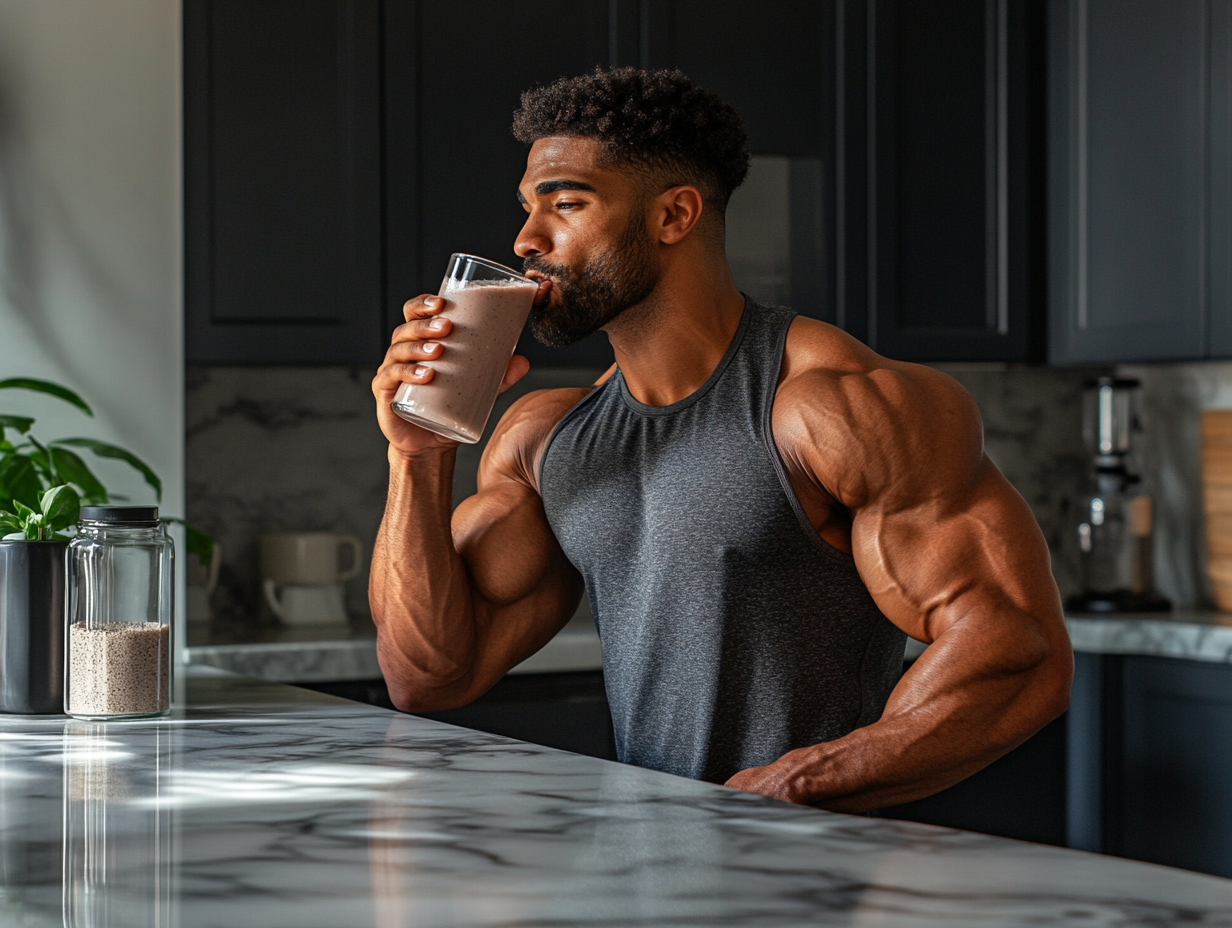
Okay so now you have just crushed a good workout, now what? What you eat after a session can make a huge difference in how you recover and build muscle. Let’s break down the details of post-workout nutrition for you real quick.
Why Post-Workout Nutrition Matters
After you workout, your energy (glycogen stores) will be running low. You need to fuel back up so you will have some energy again. Adequate nutrition after working out is the most important part of your diet when it comes to muscle growth.
Eating the right foods will make a huge difference in the strength and muscle building process. Consume carbs to refuel the glycogen tanks, and protein to rebuild the muscles that have been torn up. Some healthy fats will keep everything running smoothly as well.
Timing and What to Eat
Aim to eat within 30 minutes to an hour after your workout. This is when your muscles are most prone to soaking up the nutrients and boosting recovery and repair.
It has been shown that protein synthesis increased by 300% when macronutrients were consumed immediately post-exercise compared to just a 12% increase when consumption was delayed by 3 hours (Aragon & Schoenfeld, 2013).
Your post-workout snack or meal should have a good mix of all three macronutrients, but put simply, consuming protein as soon as possible after a workout is the most important thing.
Here are some tasty and nutritious post-workout options:
- Grilled chicken with quinoa – 40g carbs, 30g protein, 10g healthy fats.
- Greek yogurt with fruits – 30g carbs, 15g protein, 5g healthy fats.
- Whole grain toast with eggs – 20g carbs, 15g protein, 8g healthy fats
- Protein smoothie – 30g carbs, 20g protein, 5g healthy fats.
Don’t forget to hydrate too! You will need it.
By giving your body the right fuel at the right time, you’ll recover faster, gain more muscle, and be ready to go in time for your next lift. Feel free to try different foods to see what works best for you.
Boost Your Strength Gains with These Supplements
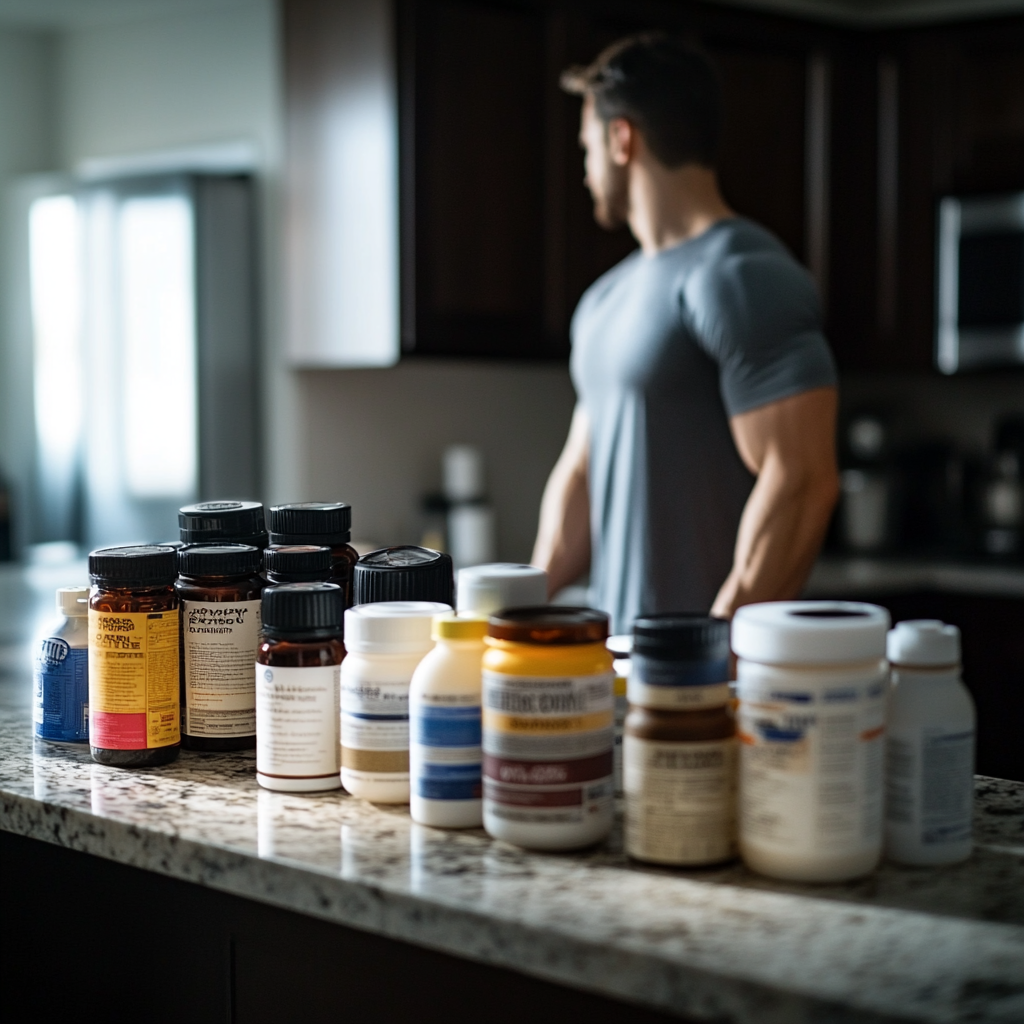
Sometimes, a little extra help can make a big difference. Supplements can give you that edge, but they should never replace good and healthy food. There are many natural supplements that can help optimize performance, with long term health benefits.
When people hear supplements, they think of sometimes illegal, unhealthy things like steroids. I get it, especially if you watched baseball during the steroid era, buuuuuut.. supplements are great! Lots of them are all natural, so no need to fret, you are doing nothing wrong consuming these.
Here are some supplements to consider:
Popular Supplements for Strength Training
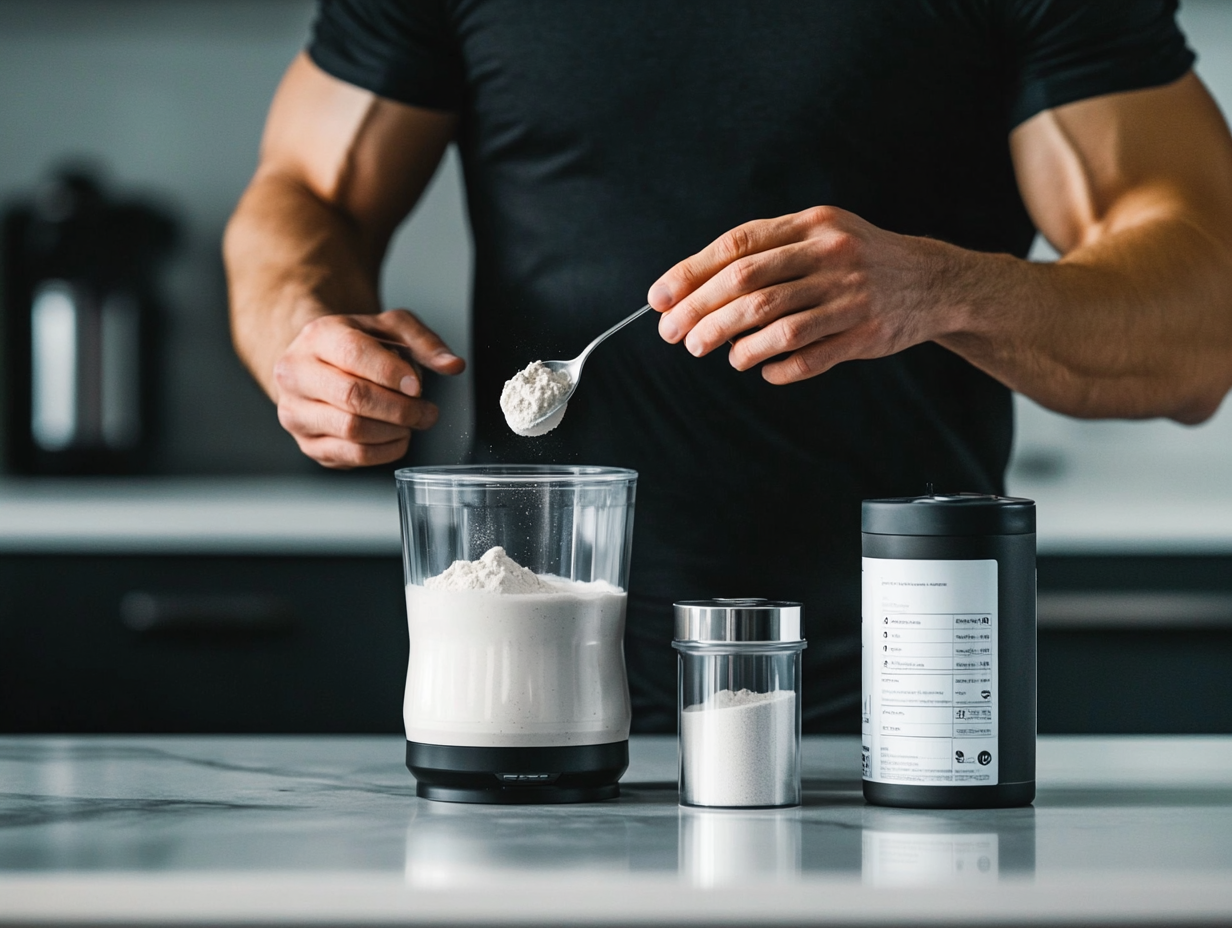
Here are some tried-and-true supplements that you can use to gain strength and muscle:
- Protein Powder – Easy way to get more protein for muscle repair and growth. There are many options, but whey protein is a great supplement to help you hit your needed protein intake for the day.
- Creatine – Boosts muscle strength and power during intense workouts.
- BCAAs – Helps with muscle recovery and reduces soreness.
- Beta-Alanine – Can improve endurance and cut down on workout fatigue.
- Fish Oil – Packed with omega-3s, good for joints and reducing inflammation.
- Vitamin D – Important for muscle function and bone health.
- Magnesium – Helps with muscle contractions and energy production.
- Zinc – Key for protein synthesis and keeping your immune system strong.
Not everyone needs these supplements, and they don’t work the same for everyone. It’s a good idea to talk to a healthcare professional or dietitian to see if they’re right for you.
How to Use Supplements Safely

The thing with supplements is you have to use them the right way, so consider these tips:
- Quality Counts: Go for supplements from brands you trust. Look for third-party testing labels like NSF International or Informed-Sport to make sure they’re clean and safe.
- Stick to the Dose: Follow the instructions on the label. More isn’t better and can sometimes be harmful. Timing matters too—like having some protein powder in a shake after a workout to help with recovery, or creatine after a workout to build muscle.
- Know Your Needs: Supplements aren’t one-size-fits-all. Your age, sex, health, and goals all play a role in what you should choose to consume.
- Watch for Side Effects: Some supplements can interact with meds or health conditions. Always check the possible side effects of supplements and make sure nothing you already consume daily will bring on unwanted effects.
- Food First: Supplements should add to a healthy diet, not replace it. Focus on eating a variety of nutrient-rich foods first. Then work on adding supplements.
By being smart about supplements, you can make better choices that fit your strength training goals. Always prioritize a balanced diet and get advice from a healthcare professional.
Now you know everything you need in order to maximize your strength training gains and build more muscle, size, and hit new PRs in the gym like no tomorrow. Refer back to this guide whenever you need help making a nutrition plan for your strength training program.
Sources
- Henselmans M, Bjørnsen T, Hedderman R, Vårvik FT. The Effect of Carbohydrate Intake on Strength and Resistance Training Performance: A Systematic Review. Nutrients. 2022 Feb 18;14(4):856. doi: 10.3390/nu14040856. PMID: 35215506; PMCID: PMC8878406.
- Ribeiro AS, Quintilhano K, Kassiano W, Nunes JP, Avelar A, Trindade MCC, Aguiar AF, Schoenfeld BJ, Cyrino ES. The Effects of Carbohydrate Intake on Body Composition and Muscular Strength in Trained Men Undergoing a Progressive Resistance Training. Int J Exerc Sci. 2023 Feb 1;16(2):267-280. PMID: 37114196; PMCID: PMC10124722.
- Lundsgaard AM, Fritzen AM, Kiens B. The Importance of Fatty Acids as Nutrients during Post-Exercise Recovery. Nutrients. 2020 Jan 21;12(2):280. doi: 10.3390/nu12020280. PMID: 31973165; PMCID: PMC7070550.
- Pendergast DR, Horvath PJ, Leddy JJ, Venkatraman JT. The role of dietary fat on performance, metabolism, and health. Am J Sports Med. 1996;24(6 Suppl):S53-8. PMID: 8947430.
- Rothschild JA, Kilding AE, Plews DJ. What Should I Eat before Exercise? Pre-Exercise Nutrition and the Response to Endurance Exercise: Current Prospective and Future Directions. Nutrients. 2020 Nov 12;12(11):3473. doi: 10.3390/nu12113473. PMID: 33198277; PMCID: PMC7696145.
- Ormsbee MJ, Bach CW, Baur DA. Pre-exercise nutrition: the role of macronutrients, modified starches and supplements on metabolism and endurance performance. Nutrients. 2014 Apr 29;6(5):1782-808. doi: 10.3390/nu6051782. PMID: 24787031; PMCID: PMC4042570.
- Stokes T, Hector AJ, Morton RW, McGlory C, Phillips SM. Recent Perspectives Regarding the Role of Dietary Protein for the Promotion of Muscle Hypertrophy with Resistance Exercise Training. Nutrients. 2018 Feb 7;10(2):180. doi: 10.3390/nu10020180. PMID: 29414855; PMCID: PMC5852756.
- Aragon AA, Schoenfeld BJ. Nutrient timing revisited: is there a post-exercise anabolic window? J Int Soc Sports Nutr. 2013 Jan 29;10(1):5. doi: 10.1186/1550-2783-10-5. PMID: 23360586; PMCID: PMC3577439.
